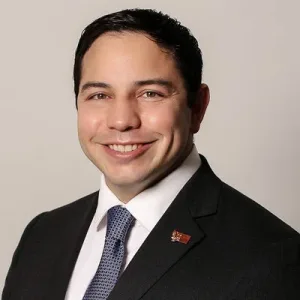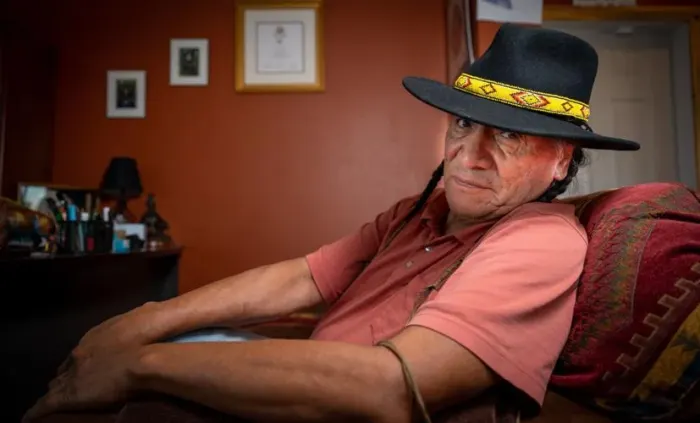Native caucus condemns resolution on reservation system
Nora Mabie
The Missoulian via ICT

Montana state Capitol (Indian Country Today photo)
Members of Montana’s American Indian Caucus condemned a draft joint resolution that “urges Congress to investigate alternatives to the American Indian reservation system.”
The draft was requested by Sen. Keith Regier, a Kalispell Republican. Regier did not respond to a request for comment.
Specifically, the resolution asks the Legislature to find that the “Indian reservation system has clearly failed to positively enhance the lives and well-being of most of the Indians or the other citizens of the State of Montana.”
It would also have the Legislature tell Congress the reservation system “has produced the negative effects of drug abuse, alcoholism, domestic violence, welfare dependence, poverty and substandard educational achievements, resulting in lack of opportunity for their future well-being and happiness.”

Sen. Shane Morigeau, a Missoula Democrat, said he was not surprised when he read the draft.
“When I first saw it, I thought it was a (public relations) stunt,” he said. “You know, attack the Indians to muster excitement from your base. And if that’s the case, it’s really sad. … Unfortunately, in this political game, people just want attention. It’s disappointing, but we expected this.”
It asserts that tribes that do not own property have the highest poverty and lowest life expectancy rates of any ethnic group in America.
The draft resolution claims that the reservation system is “based entirely on race, which is diametrically opposed to both the United States Constitution and Constitution of the State of Montana.” Federal Indian law has long interpreted the status of tribal members as a political classification, not a racial one.
The resolution also claims that reservations confer “’Sovereign nation status’ to individual tribes … a policy that is, again, diametrically opposed to the Constitution of the United States.” It also asserts that past judicial decisions regarding reservations in Montana have “produced confusion, acrimony and animosity among the general population.”

“The continuation of the reservation system is not in the best interests of either the Indians inside our borders or for our common Montana citizens,” it reads. “We believe the investigation of alternative ways of approaching the reservation system can and will produce a new system that will enhance the lives, the happiness and the opportunities for our Indian citizens while at the same time promoting peace, harmony and stability for all.”
Though the resolution speaks to the “best interests” of Native people in Montana, it was drafted by a non-Native lawmaker. The federal government recognizes tribes as distinct governments through written treaties ratified by Congress.
American Indian Caucus reacts
Rep. Jonathan Windy Boy, a Box Elder Democrat, said Native people have “been under attack for centuries.”
“The atrocities our people have endured over the years have been horrific at best,” Windy Boy said on Wednesday, citing federal Indian policy, voter suppression efforts and forced sterilization of Native women.
“Will this ever end?” he asked, adding that the draft resolution “is proof we are still under attack.”
Morigeau, Confederated Salish and Kootenai, said the resolution mirrors a familiar pattern of lawmakers attacking Indigenous people in Montana. He said draft bills have proposed to threaten water rights. And last month, legislative aide Drew Zinecker publicly questioned whether Native Americans living on reservations in Montana should be able to participate in state elections.
“A lot of people just don’t like us,” Morigeau said. “We’re a thorn in their side. They want us to go away, and we’re not going away. We’re citizens of this state and of this country.”
Morigeau said he plans to introduce a bill that would expand Indian Education for All to apply not just to Montana public school students, but to lawmakers as well. For example, he noted that the Confederated Salish and Kootenai tribal homeland once spanned 20 million acres. When the tribes were forced to sign treaties and move to the Flathead Reservation, Morigeau said it shrunk to 1.3 million acres.

“This is why it’s so important to have basic civics in Montana,” he said. “If people actually understood history in Montana, they’d see that the reason they have these lands and have wealth today is from taking Indian land. They used treaties to gain wealth, and yet we still get people who feel they still don’t have enough. They always want more. It’s greed and entitlement.”
Native voter turnout was low in the 2022 midterm election, and members of Montana’s American Indian Caucus warned that a Republican supermajority in the Legislature could threaten tribal sovereignty.
This article was first published in the Missoulian.






